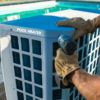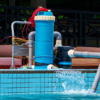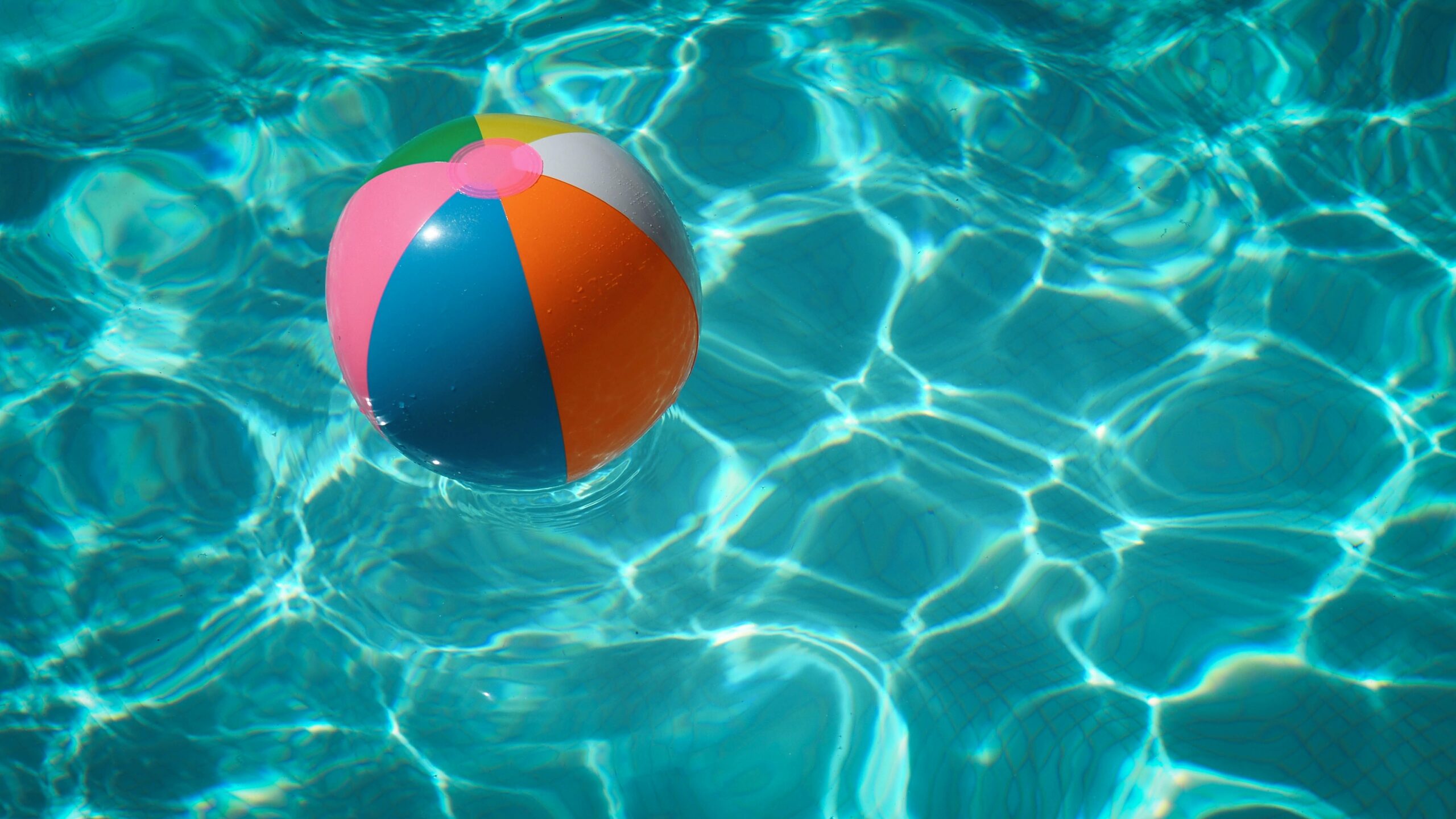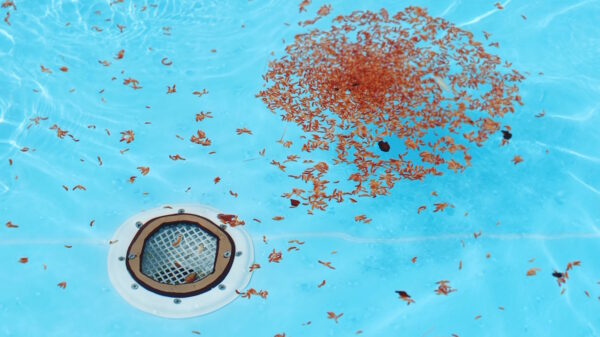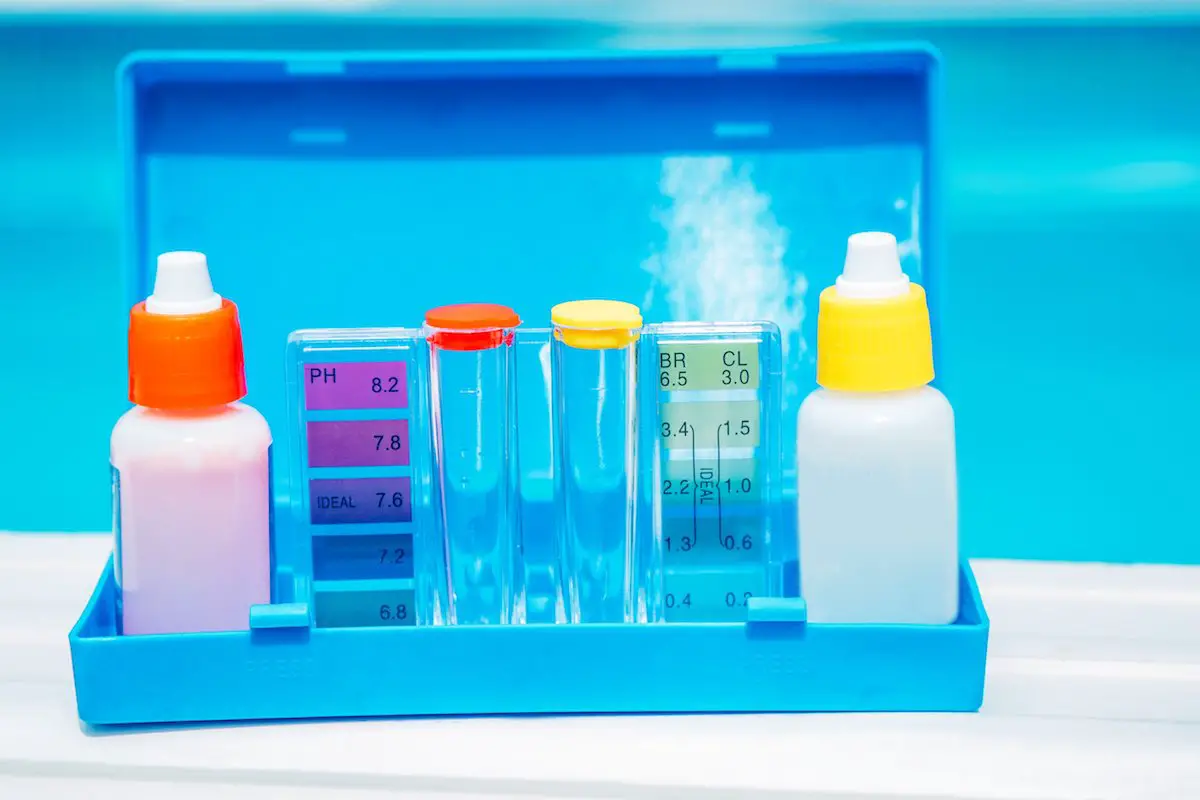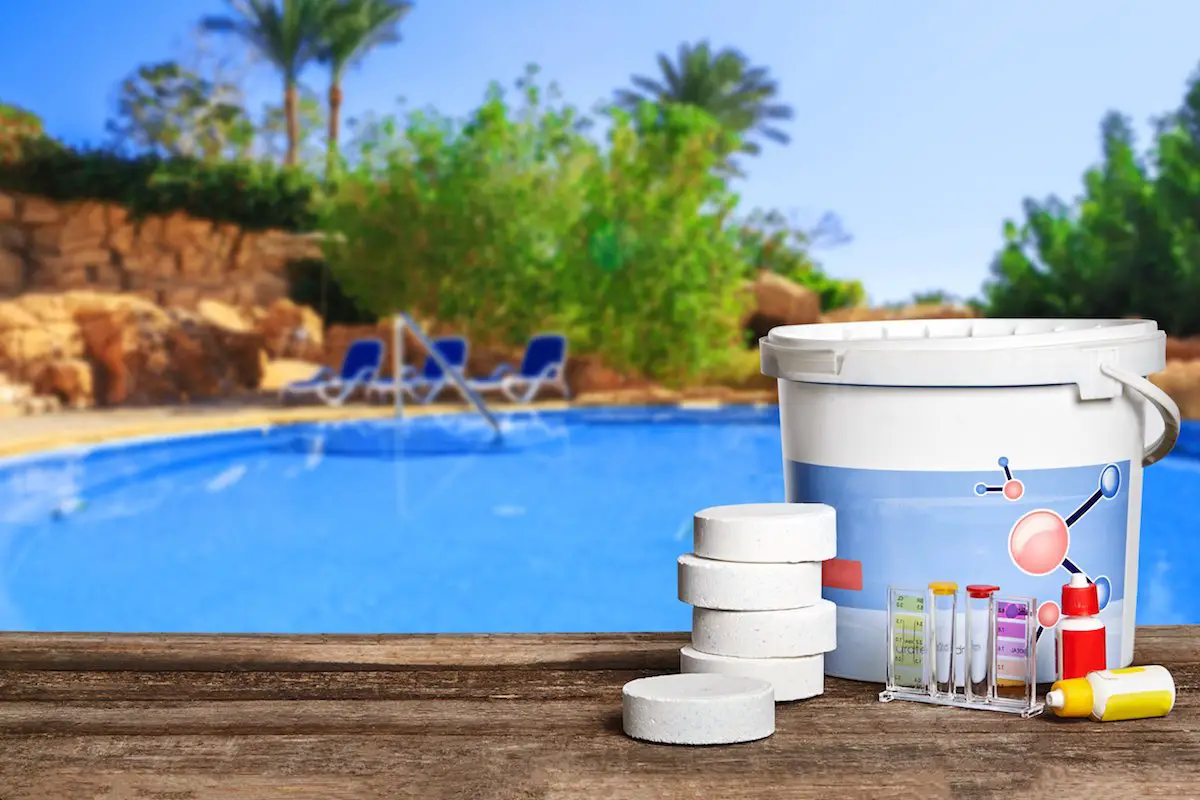Raising the Free Chlorine Level in Your Pool
If you’ve been having problems with your pool, one of the things you might need to do is raise the free chlorine level. But how do you do that? And why is it important?
So, how do you raise the free chlorine level in your pool? There are a few different ways to raise the free chlorine level in your pool. The first is by using chlorine tablets. Another way to raise the free chlorine level is by using chlorine powder. The third way to raise the free chlorine level is by using liquid chlorine.
In this blog post, we will discuss all of that and more! We’ll explain what chlorine is, how to determine the proper chlorine level for your pool, and how to measure the chlorine level in your pool.
We’ll also talk about the safest way to raise the chlorine level in your pool and the risks of improper chlorine levels.
What is Chlorine?
 Chlorine is a chemical that is used to disinfect water. It is found in nature and also produced artificially.
Chlorine is a chemical that is used to disinfect water. It is found in nature and also produced artificially.
Chlorine is added to pools to kill bacteria and other microorganisms that can cause disease.
Free Chlorine vs. Total Chlorine
There are two types of chlorine in pools: free chlorine and total chlorine. Free chlorine is the amount of chlorine available to kill bacteria and other microorganisms.
Total chlorine includes both free chlorine and combined chlorine. Combined chlorines are chemicals that form when free chlorine reacts with things like sweat, urine, or dirt in the water.
Why is Free Chlorine Important?
Free chlorine is important because it kills bacteria and other microorganisms that can cause disease. Pool water can become contaminated with bacteria from swimmers’ bodies, from the environment, or from other sources.
Chlorine is added to pools to kill these bacteria and other microorganisms. Free chlorine is the most effective at killing bacteria and other microorganisms. That’s why it’s important to make sure there is enough free chlorine in your pool.
How to Determine the Proper Chlorine Level for Your Pool
The proper chlorine level for your pool depends on a few factors, including the size of your pool, the number of swimmers, and how often the pool is used.
The Centers for Disease Control and Prevention (CDC) recommends that public pools have a minimum free chlorine level of 0.50 parts per million (ppm).
For private pools, the CDC recommends a minimum free chlorine level of 0.50-0.70 ppm.
How to Measure the Chlorine Level in Your Pool
 There are a few different ways to measure the chlorine level in your pool. The most common way is to use test strips. Test strips are dipped into the water and then compared to a chart that shows the chlorine levels.
There are a few different ways to measure the chlorine level in your pool. The most common way is to use test strips. Test strips are dipped into the water and then compared to a chart that shows the chlorine levels.
Another way to measure the chlorine level in your pool is by using a liquid test kit. A liquid test kit uses drops of reagent that change color when they react with chlorine.
The color of the reagent will indicate the amount of chlorine in the water.
The Safest Way to Raise the Free Chlorine Level in Your Pool
There are three primary ways to raise the free chlorine level in your pool safely. Let’s take a closer look at the three safest options:
Chlorine Tablets
The safest way to raise the chlorine level in your pool is to use a chlorine tablet. Chlorine tablets are slowly dissolved in the water, which allows you to control the amount of chlorine that is released into the pool.
Chlorine Powder
Powder chlorine can be added directly to the water, but this can be dangerous because it can cause the chlorine level to rise too quickly. This can be harmful to swimmers and lead to skin and eye irritation.
Chlorine Liquid
You can also add liquid chlorine directly to the water. However, like powder chlorine, this can cause the chlorine level to rise too quickly. It is important to be careful when adding liquid chlorine and to follow the manufacturer’s instructions.
How Often Should I Test the Chlorine Level in My Pool?
You should test the chlorine level in your pool at least once a week. However, it is a good idea to check it more often if you are having swimmers use the pool frequently.
Risks of Improper Chlorine Levels in Your Pool
There are several risks to improper chlorine levels in your pool.
Recreational Water Illnesses
If the free chlorine level in your pool is too low, bacteria and other microorganisms can grow and multiply. This can cause swimmer’s disease, also known as recreational water illnesses (RWIs).
Some common RWIs include ear infections, skin rashes, and diarrhea. Improper chlorine levels can also cause pool equipment to corrode.
Chlorine Over-Exposure
If the chlorine level in your pool is too high, it can cause swimmers to experience irritation of the skin and eyes, coughing, and difficulty breathing. In severe cases, chlorine over-exposure can lead to death.
It is important to maintain the proper chlorine levels in your pool to keep swimmers safe and healthy.
Signs of Low Chlorine In a Pool
The signs of low chlorine in a pool include cloudy water, algae growth, and strong chloramine odors. If you notice any of these signs, you should test the chlorine level in your pool and take steps to raise it if necessary.
Signs of High Chlorine In a Pool
The signs of high chlorine in a pool include strong chlorine odors, irritations of the skin and eyes, and coughing. If you notice any of these signs, you should test the chlorine level in your pool and take steps to lower it if necessary.
Should A Professional Monitor Your Pool’s Chlorine Level?
 While you can test and adjust the chlorine level in your pool yourself, it is always a good idea to have a professional monitor your pool’s chlorine level.
While you can test and adjust the chlorine level in your pool yourself, it is always a good idea to have a professional monitor your pool’s chlorine level.
A professional pool service can test the water for you and make sure that the chlorine levels are safe for swimmers.
They can also add chemicals to the pool as needed to maintain the proper chlorine levels.
Monitoring the chlorine level in your pool is just one of the many tasks that a professional pool service can do for you. A professional pool service can also clean your pool, vacuum your pool, and perform other maintenance tasks.
Hiring a professional pool service is a great way to take care of your pool so that you can enjoy it all season long!
Other Important Pool Chemicals to Monitor
In addition to chlorine, there are a few other important pool chemicals that you should monitor. These include pH, alkalinity, and calcium hardness.
Pool pH
pH is a measure of how acidic or basic the water is. The ideal pH for swimming pools is between seven and eight.
Alkalinity
Alkalinity is a measure of the water’s ability to neutralize acids. The ideal alkalinity for swimming pools is between 80 and 120 ppm.
Calcium Hardness
Calcium hardness is a measure of the amount of calcium in the water. The ideal calcium hardness for swimming pools is between 175 and 225 ppm.
Monitoring these pool chemicals can be done with test strips or liquid test kits. Test strips are dipped into the water and then compared to a chart to determine the levels of the various chemicals.
Liquid test kits are more accurate than test strips, but they are also more expensive. No matter which method you use, it is important to test the water regularly and adjust the levels as needed.
You can find all of the pool chemicals and testing supplies that you need at your local pool supply store or online.
Do Above Ground Pools Use Chlorine?
Yes, above-ground pools use chlorine. Above-ground pools typically have lower chlorine levels than inground pools because they are smaller and have less water.
However, it is still important to maintain the proper chlorine levels in your above-ground pool to keep swimmers safe and healthy.
When adding chlorine to your above-ground pool, be sure to follow the manufacturer’s instructions carefully. You can also hire a professional pool service to monitor the chlorine level in your pool for you.
Alternatives to Using Chlorine in Your Pool
If you are looking for an alternative to using chlorine in your pool, you may want to consider using a salt water system. Saltwater systems use salt to generate chlorine.
Saltwater Pool Systems
Saltwater systems are less harsh on swimmers than traditional chlorine pools and they also tend to have fewer problems with algae growth. You can find saltwater systems at your local pool supply store or online.
In Conclusion
Chlorine is an important chemical in swimming pools. It helps to kill bacteria and other microorganisms that can cause swimmer’s disease.
The free chlorine level in a pool should be between one and three ppm. The easiest way to test the chlorine level in your pool is with test strips.
You can also hire a professional pool service to monitor the chlorine level in your pool for you. This will ensure that your pool is safe for fun all summer long!
Related Questions
Can I use bleach instead of chlorine in my pool?
No, you should not use bleach instead of chlorine in your pool. Bleach is not as effective as chlorine at killing bacteria and other microorganisms. In addition, bleach can be harmful to swimmers if it is not used properly.
Is it safe to swim in a pool with no chlorine?
No, it is not safe to swim in a pool with no chlorine. Chlorine is necessary to kill bacteria and other microorganisms that can cause swimmer’s disease. without chlorine, these microorganisms can quickly multiply and make swimmers sick.


